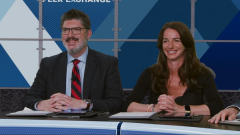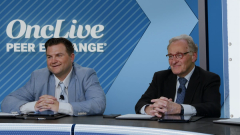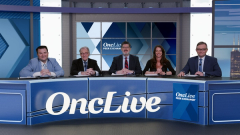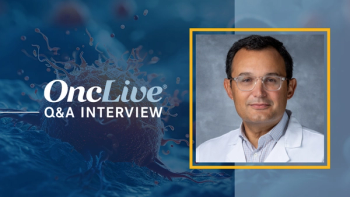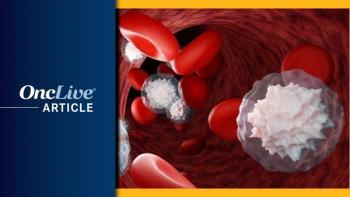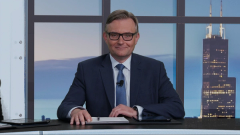
Strategies for Supportive Care and Monitoring in Patients Who Have Received CAR T-Cell Therapy
Experts in lymphoma take part in a discussion on supportive care for patients who receive CAR T-cell therapy.
Episodes in this series

Grzegorz S. Nowakowski, MD: The increased use of CAR [chimeric antigen receptor] T-cell therapy in the second line will see more of those patients moving to the community setting. About 40% do well long term in those studies. What do you do for supportive care of those patients? Some of them can have hyperglobulinemia or infections, and they’re now coming to the community oncologists. How do they deal with this?
Frederick Locke, MD: This is an important question. I want to address 1 thing, because you mentioned the 40%, and you asked earlier why the PFS [progression-free survival] doesn’t look better. I’d add to what Caron [Jacobson] said: ZUMA-1, which led to approval, showed about a 40% PFS on a modified intent-to-treat basis, meaning only those who got CAR T. I quoted you the EFS [event-free survival] data. If you look at PFS, it’s even higher in the axi-cel [axicabtagene ciloleucel] arm at about 46% at 2 years, and that’s on an intent-to-treat basis with every patient randomized. Remember, they didn’t all get CAR T, so it’s actually better. It’s just comparing apples with oranges a little.
In response to your follow-up question, it’s all about communication. We have to get patients back to the community providers. We still ask our patients to see us for restaging, and we revaccinate our patients, although we have some data that suggest that vaccines don’t work very well after CD19 CAR T-cell therapy. But we want the patient to go back to their community oncologist to have blood work done. If they have cytopenias—1 of the major issues we have to look out for—they could get growth factor support. In our center, we don’t routinely use IVIG [intravenous immunoglobulin] for low IgG unless a patient is having recurrent infections. I’m interested in what you guys do.
Leo Gordon, MD: We have a similar pattern. We send many of these people back to their community oncologist. We still see many of them ourselves. We also don’t routinely give IVIG. Some patients have been previously addicted to IVIG, so it’s hard to get them off it. But we don’t routinely give it unless there are infections. We measure CD4 counts, for what they’re worth. I’ve been measuring CD4 counts for 20 years in people getting bendamustine, so I’m used to it. I keep patients with CD4 counts less than 200 per mm3 on Bactrim and acyclovir. When they get above 200 per mm3, I usually stop that.
Matthew Lunning, DO, FACP: The only monoclonal antibody I’m encouraging right now is Evusheld. That’s often before discharge and after their CAR T cell. I ask, “Have you got your 2 shots in the butt?” They remember that. Continuing to move the CAR T-cell train down the tracks, all these adjunctive, supportive things may matter because COVID-19 is still real. We haven’t mentioned that word yet.
Leo Gordon, MD: That’s surprising.
Matthew Lunning, DO, FACP: Surprising, isn’t it? But it can be effective, and you come back to vaccinations. We do the same thing with regard to IVIG. We don’t base it on the IgG count. We base it on the sign of pulmonary infections. But IVIG is probably a good source of COVID-19 antibodies now too.
Leo Gordon, MD: It is. exactly. At the beginning of the pandemic, people asked, “Why can’t I get IVIG?” They were told, “It isn’t doing anything.” But now, we’re seeing people with both antispike and antinucleocapsid antibodies who didn’t have COVID-19, so they’re getting it from pulled plasma. You’re right. It’s a form of Evusheld in a way, except it may be better because Evusheld was done during delta, not omicron. The stuff they’re getting now includes delta and omicron. Maybe there’s a role. I don’t know.
Matthew Lunning, DO, FACP: Agreed.
Transcript edited for clarity.


